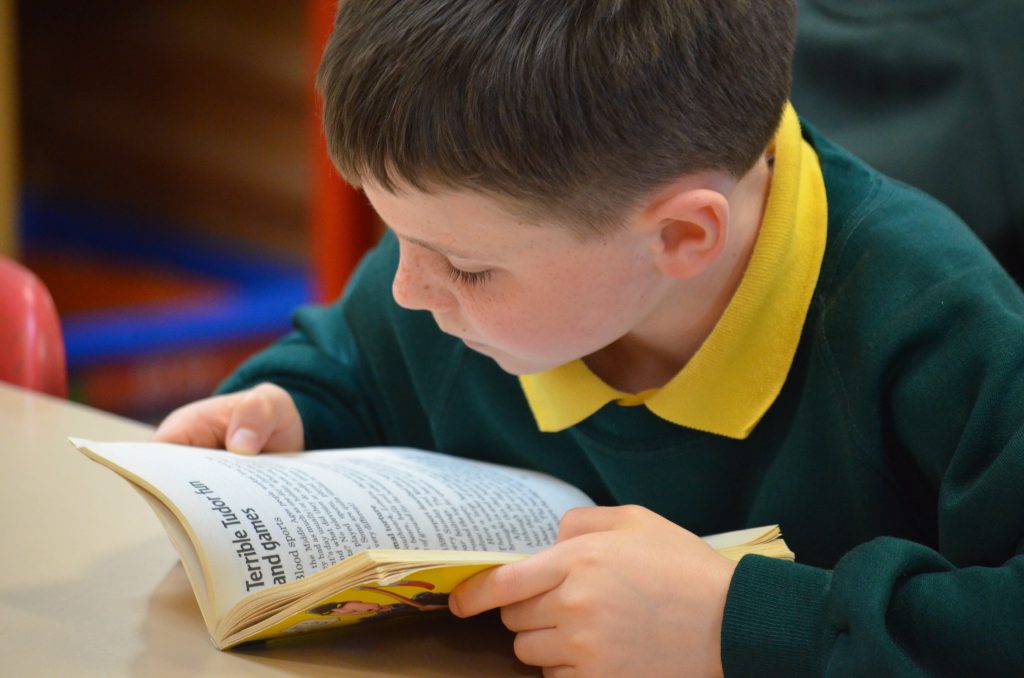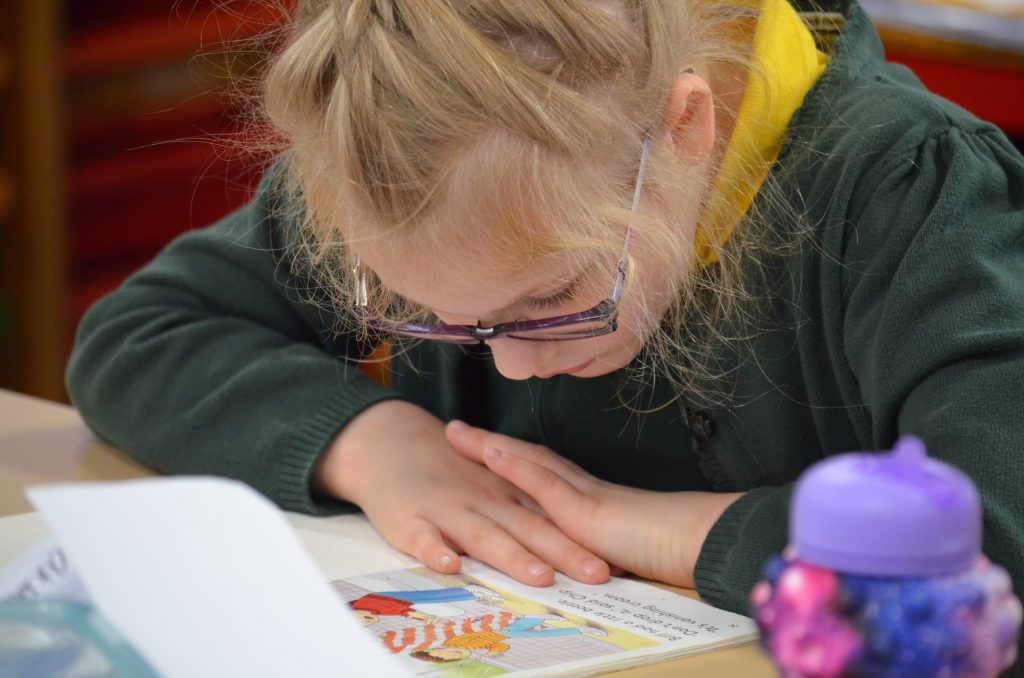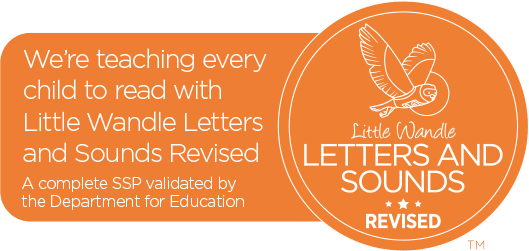Reading and Phonics
At Linby cum Papplewick C of E Primary School, the ability to read and the nurture of a love of reading is a high priority and we work closely with parents to achieve this. We know that reading is a lifelong skill that unlocks all learning. Our aim is for all pupils to leave our school being able to read fluently and have a love of reading.
Reading with your child daily is the single most important thing you can do to support your child’s academic progress. Reading quality fiction also impacts their social and emotional development giving you opportunities to discuss many day-to-day issues they will meet.
Phonics
At Linby-cum-Papplewick CofE Primary School, children’s initial route into early reading is through the teaching of systematic, synthetic phonics. We are a member of Little Wandle Phonics and early reading throughout the school.
Children in Early Years Foundation Stage and Key Stage 1 follow the synthetic phonics approach, using the Letters and Sounds programme. It is an approach in which the children are taught about the relationship between letters (graphemes) and the sounds they make (phonemes) and how the 44 sounds in the English language can be combined to create different words. This provides the children with the foundation to be able to blend the sounds together in order to read the words and segment words into their sound parts to be able to spell them.
The sounds the children are taught are matched to their independent reading books which allows them to practise these skills at home and at school and over time ensure they become much more fluent word readers.
Please follow the links below for further information on the Little Wandle Programme and to watch videos that show how different sounds are taught.
How to videos for parents and carers
Whole-class Reading
Whole-class reading starts in Year 1 and continues all the way up to Year 6 using the Schofield and Sims Complete Comprehension scheme of work. Guided Reading sessions are delivered daily with a whole class approach. The scheme covers a wide variety of fiction, non-fiction and poetry texts, with the aim to develop the children’s vocabulary, inference and deduction, prediction, explanation (of authorial intent or impact on the reader), retrieval, summarising and sequencing skills. The scheme is supplemented with texts selected from each year group’s bespoke reading spine, which are linked to topics being covered that half term.
Every child at Linby cum Papplewick Primary School has a reading record and an individual scheme reading book that links directly to their current phonetical knowledge. Children are also given the opportunity to take home an additional ‘reading for pleasure’ book, which they select themselves, with the view that this can be shared with an adult at home for enjoyment. We encourage all children and parents to read at home and for parents to log their practise within their reading records.
We consider reading to be the foundation on which the rest of the curriculum is built; children learn to read so they can read to learn. Each year group has a bespoke reading spine, full of carefully selected and culturally diverse texts linked to their learning across the curriculum that half term. The texts inspire and support the children in their wider learning and allow for opportunities for children to deepen their knowledge of a particular topic.
Our Progression of Knowledge and Skills in Reading is shown below:
Reading guidance for parents and carers
- Always choose the colour band your child has been sent home with. We regularly ‘Benchmark’ the children and check their progress and will change the band when appropriate. The Benchmark assessment is a national standard which is very effective in accelerating progress when used with our colour coded reading books. Only when children are reading above 95% accuracy at the level they are on are they ready to progress to the next level. This ensures a level of reading that enables comprehension as well as the correct level of challenge for word decoding skill development.
- It is essential that children read a broad range of books which extends beyond the Oxford Reading Tree (Biff and Chip).
- Encourage children to re-visit favourite books. It’s not just a case of getting through the book bands as quickly as possible.
- Do check understanding, the use of punctuation etc.
- Try reading speech in different types of voice, i.e. whisper, gruff etc.
- The teacher may send home in the Keeping in Touch books ideas to emphasise or things to look out for.
- Do speak to the staff about any questions you may have.
- Do read to your child (not restricted to the book band they are on). We want, above all, the children to feel positive about reading and the wonderful world of books, fiction and non-fiction.
We cannot stress enough the impact of reading to and listening to your children read on a daily basis in how they achieve in education. This is the most important aspect of homework for all pupils from Reception all the way through to Year 6. Children that are reading on a daily basis with parents make much greater progress academically and we appreciate parental support in this.
“The ability to read is vital to pave the way to success in school, which can build self-confidence and motivate your children to set high expectations for life.”
Reading at home enables children to:
- Learn how to read
- Develop fluency in reading
- Develop comprehension
- Widen their vocabulary (it is important to talk about word meanings)
- Improve their communication
- Improve their writing (writing & sentence structure, spelling & vocabulary)
- Improve understanding across all subject areas
We value parental support in reading with children daily and also helping support children in:
- Book choice – Finding books they enjoy and are of suitable difficulty and content
- Ensure they understand the books they read and have the opportunity to talk about the books and any issues raised (stories can provide great opportunities to open up discussions on a broad range of life issues with your children)
- Encourage them to persevere with books and finish them
- Encourage your children to read a broad range of books with a variety of authors and genre
“As a parent, you are your child’s first and most important teacher. When you help your child learn to read, you are opening the door to a world of books and learning”
We closely monitor how often children read at home. Keeping in Touch Book are used to record reading at home.
Below are a number of links to useful websites to help in book selection and will support you in reading with your child.
Tips on Listening to Children Read (more articles available online):
https://www.topmarks.co.uk/parents/ten-tips-on-hearing-your-child-read
Is reading at home with your child difficult? Do you want ideas for reading activities?
A great website to help with these questions and reading at home generally is www.oxfordowl.co.uk – this has inspiring suggestions, great explanations and support for parents reading with their children.





